To ensure we are equipping our readers with all the information they need, we will continue to report on all travel, safety, and COVID-related news that could impact a Disney Parks visit.
For the latest updates about travel to Disney World and Disneyland, click here.
This Post Was Last Updated On: September 29th, 2022 and will no longer be updated. For the latest updates, click the link above to see our post which is continuously updated with details about travel to Disney World and Disneyland.
Things with COVID-19 have changed over the past few months.
We’ve shared news about vaccine updates, mask rule changes, COVID-19 numbers in Florida, and more. Now, due to the latest information about the Omicron variant and subvariants that have arisen, some things have changed again. So what’s the current status of restrictions and other information related to Omicron? Here’s what you need to know.
What is Omicron?
Omicron is the name of a COVID-19 variant. According to the World Health Organization (“WHO”), the variant was first reported to them from South Africa on November 24th, 2021. On November 26th, 2021, the WHO identified Omicron as a “variant of concern.”
According to the WHO, Omicron “has a large number of mutations, some of which are concerning.” The CDC notes that “Omicron spreads more easily than earlier variants, including the Delta variant.”
The New York Times reports that Omicron has been detected in at least 190 nations, as well as in all 50 U.S. states and Washington, D.C.
The WHO released a video with more information about Omicron on December 17th, 2021 where Dr. Maria Van Kerkhove answered a number of questions. According to Dr. Kerkhove, individuals who get Omicron “can have the full spectrum of disease, everything from asymptomatic infection, mild infection, people needing hospitalization, and people have died from Omicron.”
The CDC points out that Omicron causes less severe illness and death generally, but surges could lead to increases in hospitalizations and deaths.
In terms of protecting yourself against Omicron, Dr. Kerkhove noted that the first thing is to get vaccinated. Other measures like physical distancing, wearing a well-fitted mask, cleaning your hands, and avoiding crowds were also cited as things to help prevent the spread of Omicron.
Omicron in the U.S.
On December 1st, 2021, CNN reported that the first confirmed case of the Omicron variant had been found in the United States, specifically in California.
According to the latest CDC data, BA.2 (an Omicron subvariant) recently made up around 0.0% of cases, and BA.2.12.1 (a separate subvariant of Omicron) made up 0.0% as well. A newer COVID-19 variant — BA.5 — now makes up over 80% of cases in the U.S.
According to Newsweek, more than 1 million COVID-19 cases were recorded in the United States on Monday, January 3rd, 2022, which set a new global daily record at that time.
The number of new COVID-19 cases in the U.S. has changed quite a bit over the last several weeks and months. Based on information from Google, as of September 28th, 2022 the 7-day case number average was 50,505. That is significantly lower than the numbers the U.S. saw back in January and early February, but higher than some numbers from March and April.
Keep in mind that this entire situation can change rapidly, so be on the lookout for more updates.
Omicron in Florida
The first Omicron COVID-19 cases were detected in Florida back in December of 2021. Omicron had also previously been detected in the wastewater for Orange County, Florida, which is the county where much of Disney World is located.
In mid-April of 2022, levels of the BA.2 Omicron subvariant had been increasing in wastewater near Disney World.
Orange County, Florida (where much of Disney World is located) was previously labeled as a COVID-19 hotspot, a “rapid riser county.” In late December of 2021, Florida also broke the state’s daily record for new COVID-19 cases. In mid-January, Florida hit a milestone of 5 million reported COVID-19 cases.
Things have changed over time, with Orange County later going into the “low” category, and then moving to the “high” category for a period of time. As of the latest updates to this post, Orange County, FL is in the “low” category.
The CDC recommends that individuals stay up-to-date on their COVID-19 vaccines, and get tested if they have symptoms. Those who test positive for COVID-19, have symptoms, or are exposed to someone with COVID-19 should also wear a mask.
Note that Osceola County, FL (the other county within which Disney World is located) is in the medium category as of the latest updates to this post. Those who are at high risk for severe illness should speak with their healthcare providers about whether to wear a mask in this county.
In May of 2022, it was reported that COVID-19 hospitalizations had been increasing in Florida.
According to updates from The New York Times from September 29th, 2022, there has been a 25% decrease in terms of the 14-day change when it comes to hospitalizations.
Numbers continue to change and evolve as the situation with COVID-19 changes.
COVID-19 Vaccines and Omicron
According to the CDC, “vaccines help prevent severe illness, hospitalizations, and deaths.” But, breakthrough infections in people who are vaccinated can occur.
Here’s a breakdown of how well each vaccine works according to Yale Medicine:
- Pfizer-BioNTech: When it first applied for FDA authorization, its “initial Phase 3 clinical data surpassed expectations with 95% efficacy.” But, “data on real-world effectiveness for adults shows that the protection from the mRNA two-dose primary series wanes over time; however, a booster dose (for those who are eligible) brings the immune system back to robust levels.”
- Moderna: Its initial Phase 3 clinical data showed about 95% efficacy (this was from back in 2020)
- Johnson & Johnson: The data submitted in early 2021 showed a “67% efficacy in preventing moderate to severe/critical disease by 14 days after vaccination—and 66% effective 28 days after vaccination.”
- Novavax: The vaccine is said to be 90% effective against lab-confirmed, symptomatic infections, and 100% effective against “moderate and severe disease” according to certain Phase 3 trial results
What about variants specifically? Scientists are still learnings about that. But, Yale Medicine says the following:
- Pfizer-BioNTech: While experts have indicated that the vaccine, followed by boosters, can provide protection against severe illness, hospitalization, and death, there have been some breakthrough infections from the new variants. Pfizer has worked on developing a new booster (which is now available) to target Omicron.
- Moderna: Essentially the same as the situation with Pfizer.
- Johnson & Johnson: At the end of 2021, Johnson & Johnson shared some results of a study from South Africa that showed the booster was 85% effective against hospitalization. More research is set to be forthcoming.
- Novavax: More information is needed
CNBC shares that for both the BA.1 and BA.2 variants of Omicron, one study has shown that “the two-dose vaccines…provide more than 70% protection against hospitalization and death, and booster doses increase this protection to more than 90%.”
In August of 2022, the FDA authorized bivalent forms of the COVID-19 vaccines for Pfizer and Moderna for use as a single booster. These “updated boosters” are meant to provide better protection against COVID-19 caused by the Omicron variant.
According to NBC Chicago, though the FDA approved the Johnson & Johnson booster, “the Centers for Disease Control and Prevention said people should get the Pfizer-BioNTech and Moderna boosters instead where possible, citing concerns over extremely rare blood clots.”
In terms of getting a vaccine and booster, the CDC has a number of recommendations. It recommends that those 6 months through 4 years should get all COVID-19 primary series doses, while those 5 and older get all primary series doses AND a booster dose (if eligible).
You can visit the CDC website to take a short quiz to find out when you can get your booster and see if you are “up to date” with your COVID-19 vaccines.
BA.2 Subvariant
A subvariant of Omicron called BA.2, which was originally detected in Denmark, reached the United States some time ago. As of the last updates to this post, it no longer makes up a large percentage of cases in the United States.
To learn more about the symptoms of BA.2 and other details about this subvariant, click HERE
BA.2.12.1 Subvariant
Another COVID-19 Omicron subvariant has emerged — BA.2.12.1. This subvariant is thought to be 27% more contagious than BA.2. As of the latest updates to this post, it no longer makes up a large percentage of cases in the United States.
To learn more about this BA.2.12.1 variant, what to look for, and how it could impact your trip — click here
BA.5 Subvariant
The BA.5 subvariant now makes up the greatest amount of COVID-19 cases in the U.S. The CDC has indicated that there’s no evidence that these variants are “inherently more severe than other Omicron subvariants,” but they could be more transmissible than previous strains.
Click here to read all about the BA.5 subvariant and what you need to know
Note that, as we pointed out above, other subvariants may ultimately be found and become dominant. We’ll keep an eye out for updates.
COVID-19 Testing & Masks
Testing
Individuals may be able to get at-home COVID-19 tests covered by private insurers. According to USA Today, Americans who have private health insurance may be able to get up to 8 at-home COVID-19 tests for free. Additionally, “private health plans are required to cover the over-the-counter tests at up to $12 per test.”
In January, a government website went “live” that allowed households in the United States to order 4 FREE COVID-19 at-home tests to be shipped to them. That program ended in September of 2022.
Masks
The U.S. government was providing 3 free N95 masks to every person that visits a community health center, as well as participating pharmacies and retailers like CVS, Costco, and Walmart.
To find a health center near you, visit the government website here. To see which pharmacies and retailers near you may still be participating in the program, visit the CDC website here.
The CDC has updated its mask guidance to note that “Loosely woven cloth products provide the least protection, layered finely woven products offer more protection, well-fitting disposable surgical masks and KN95s offer even more protection, and well-fitting NIOSH-approved respirators (including N95s) offer the highest level of protection.”
The CDC now uses a modified community transmission level system.
Based on the community level of a particular county, individuals may be encouraged to wear a mask per the CDC (in general) or masks may only be recommended for those at high risk for severe illness.
Masks on Planes
In terms of masks on public transportation (like planes, trains, buses, and transportation hubs), the mask requirement was extended through May 3rd, 2022, but the CDC’s mask requirement for transportation was then struck down by a federal judge in Florida.
Following that judge’s decision, the TSA announced that it would not enforce the mask mandate on public transportation. We then saw Uber, some airports, Disney World, Disneyland, and various airlines change their mask requirements.
In August of 2022, Reuters reported that a group of 23 state attorneys general told a federal court that the CDC “lacks the legal authority to impose a nationwide transportation mask mandate to address COVID-19.”
We’ll keep an eye out for more updates.
Click here to see more about the appeal
Travel Restrictions — United States
If you’re planning to travel to the United States from an international location, these are the current travel restrictions you need to know about.
Travel Bans
According to the U.S. Department of State, the United States restricted travel from the following countries as of November 29th, 2021 due to concerns about Omicron: Botswana, Eswatini, Lesotho, Malawi, Mozambique, Namibia, South Africa, and Zimbabwe. These travel restrictions have since been updated. See the latest information below.
UPDATE: On December 28th, 2021, the White House issued a proclamation revoking the previous proclamation containing the travel restrictions. The updated proclamation notes that since the time of the issuance of the first proclamation, health officials have “made substantial progress in understanding the Omicron variant” and the Omicron variant has now spread to many countries, including the U.S.
As a result of this new proclamation, the travel restrictions placed on those 8 southern African countries were revoked. The restrictions were lifted effective December 31st, 2021 at 12:01AM ET.
COVID-19 Testing and Vaccination
Per an order from the CDC (which took effect starting on November 8th, 2021), all non-immigrant, non-citizen air travelers to the United States are required to be fully vaccinated and provide proof of their vaccination status BEFORE boarding a plane to the U.S. Only limited exceptions apply.
Previously, there were also certain COVID-19 testing requirements for travelers coming to the US from international locations. Those COVID-19 testing requirements have now ended. For both US citizens re-entering the country and international travelers visiting the US, a negative COVID-19 test is no longer required.
Note that proof of vaccination is not required for U.S. citizens and Lawful Permanent Residents before boarding a flight to the U.S.
After You Arrive in the U.S.
In terms of suggestions for after you travel, the CDC has certain testing recommendations. Specifically, the CDC recommends that all travelers get tested with a viral COVID-19 test 3-5 days after arrival in the U.S.
Be sure to review the recommendations to see what applies to you.
“Up to Date” on COVID-19 Vaccines
The CDC has some recommendations when it comes to being “up to date” on COVID-19 vaccines. Specifically, the CDC recommends that individuals make sure they are “up to date” with their COVID-19 vaccines BEFORE traveling internationally.
The CDC’s definition of “up to date” is when a person has received all doses in the primary series and the most recent booster dose recommended for you, when eligible.
Be sure to review the CDC’s recommendations to determine what recommendations might apply to you.
Who Should NOT Travel
Again, the CDC recommends that individuals make sure they are “up to date” with their COVID-19 vaccines BEFORE traveling internationally.
Wearing a Mask
The CDC does have some updated recommendations regarding when to wear a mask based on community levels.
All travel restrictions are subject to change.
Specific States
Specific states within the United States may have specific COVID-19 requirements or recommendations. Be sure to check the rules and regulations of any states you’ll be visiting ahead of your trip.
Click HERE to see a post from CNN about state COVID-19-related rules. The post contains links to pages for the various states in the United States. You can click the links to get updated information.
Aulani, A Disney Resort & Spa in Hawaii
Previously, Aulani sent an email to travel agencies that noted that COVID-19 boosters may be required for travelers who want to come to Hawaii and bypass the self-quarantine mandate. The state ultimately decided against this.
Aulani’s website was later updated to note some changes. The State of Hawaii’s Safe Travels program concluded and there are no COVID-related travel requirements for arriving domestic guests. International guests, however, need to review what advisories or restrictions may be in place.
COVID-19 warnings have since been removed from most Disney websites.
Mask requirements have also changed at Aulani. Mask requirements are now suspended in most places at the hotel. Click here for more on that situation.
Travel Restrictions — Florida
A page that previously existed on the Florida Department of Health website said “Florida is one of the top travel destinations in the world and there are currently no travel restrictions in place.” (Note that the page previously linked to for that statement appears to no longer feature that statement.)
The regular U.S. travel restrictions discussed above would apply to any travel to Florida, but Florida does not currently have any additional travel restrictions in place.
According to NPR, Florida governor Ron DeSantis has previously indicated that “the threat of a new worrisome COVID mutation won’t change his pledge to stand firm against lockdowns and vaccine mandates.”
Travel Restrictions — Other Countries
Generally
If you’re planning to leave the U.S. and travel internationally, you’ll also want to keep in mind that there are some recommendations or restrictions in place.
By visiting the U.S. Department of State website, you can see all of the current travel advisories. There are various levels of travel advisories including Level 4 (Do Not Travel), Level 3 (Reconsider Travel), and more. You can check your destination and see what travel advisories are in place.
In early 2022, a “Do Not Travel” notice was put in place for Canada. As of the latest updates to this post, Canada now falls under level 1, which is called “exercise normal precautions.”
You can also check the CDC’s site for their designations of locations and whether they fall into a “low,” “moderate,” or “high” level of risk. In May and June of 2022, 8 locations were placed into the “high” level. This level applies to countries that have had more than 100 cases per 100,000 residents in the past 28 days. These continue to change and be updated.
Select other countries have travel restrictions in place, but many of those are changing. For example, Japan has announced changes to its COVID-19 travel restrictions, which will soon enable many more to enter the country easier.
You can click here to see details on international travel policies and restrictions from CNN.
International Disney Parks
Disneyland Paris
Previously, some restrictions had been put in place for travel from the UK to France, which impacted Disneyland Paris. Rules to travel from the UK to France have since changed, and the Disneyland Paris website had been updated to reflect that.
COVID-19 vaccine requirements have been updated in France and Disneyland Paris. On March 2nd, mask requirements were updated so that guests would generally no longer be required to wear masks. The Disneyland Paris website now notes that masks are no longer required in the park, but are recommended in some places. Additionally, as of March 14th, 2022 vaccine passes and health passes are no longer required to visit Disneyland Paris.
Hong Kong Disneyland
Hong Kong Disneyland was shut down for a period of time in 2022. The park reopened in April of 2022.
Additionally, Hong Kong previously banned all flights from the United States and select other countries due to COVID-19 concerns. Who may enter Hong Kong and COVID-19 rules and regulations in the country are subject to change — click here for the latest updates.
Shanghai Disneyland
Due to COVID-19, Shanghai Disneyland closed on March 21st, 2022. In June of 2022, it began a partial reopening.
It then more fully reopened in June of 2022.
Traveling and Masks
For travel in the U.S. there was a requirement that individuals wear masks on airplanes, trains, buses, and at airports and transit stations.
The mask requirement was extended through May 3rd, 2022, but the CDC’s mask requirement for transportation was then struck down by a federal judge in Florida.
Following that judge’s decision, the TSA announced that it would not enforce the mask mandate on public transportation. We’ve since seen Uber, airports, Disney World, Disneyland, and various airlines change their mask requirements.
Reuters has reported that a group of 23 state attorneys general told a federal court that the CDC “lacks the legal authority to impose a nationwide transportation mask mandate to address COVID-19.” We’ll be looking for any updates.
Click here to see more about the appeal
COVID-19 Vaccines and Testing in Orlando
You can click here to see more updates about Orange County COVID-19 testing; or follow Orange County on Twitter, where they regularly post updates about testing sites.
Check to see what’s available during your trip.
Disney Cruise Line
If you’ll be going on a Disney Cruise, keep in mind that there are specific COVID-19 regulations that apply to that as well. Disney Cruise Line previously updated its mask requirements, and it has announced updates to its COVID-19 vaccine requirements.
The CDC is no longer regulating cruises when it comes to COVID-19, and some cruises have removed their COVID-19 testing requirements, including Disney Cruise Line.
Beginning October 14th, 2022, guests sailing on the Disney Wonder, Disney Dream, Disney Fantasy, and Disney Wish will NOT be required to be fully vaccinated against COVID-19. Beginning November 7th, 2022, the same change goes into effect for the Disney Magic.
Additionally, note that starting September 23rd, 2022, fully vaccinated guests sailing on the Disney Dream, Fantasy, Wish, and Wonder are no longer required to participate in COVID-19 testing in order to sail. For the Disney Magic, this change begins on November 7th, 2022.
Click here to learn about this vaccine update for Disney Cruise Line
Other Updates
That’s a current look at travel restrictions and more due to COVID-19 and the Omicron variant. Keep in mind that these things can all change. Be sure to check back for more updates.


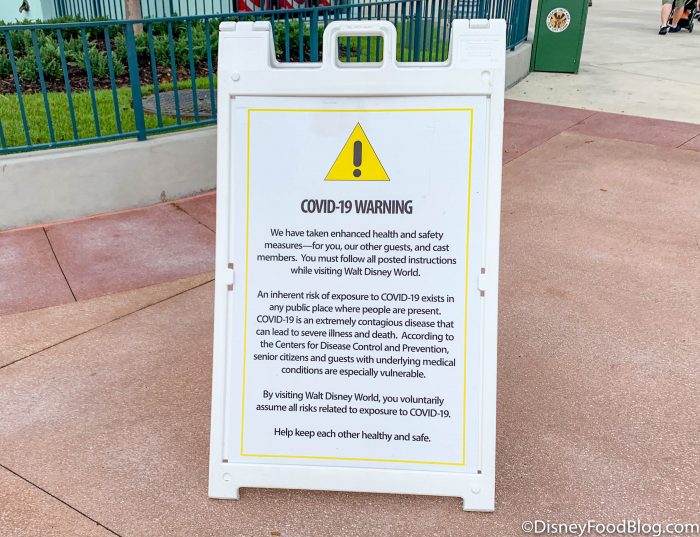
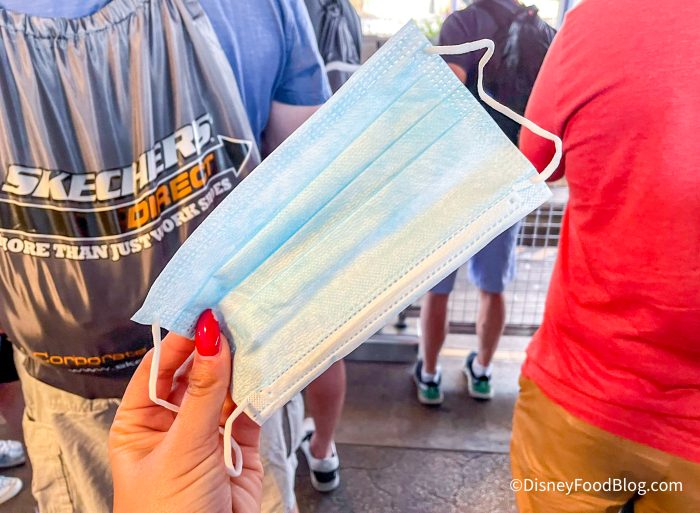
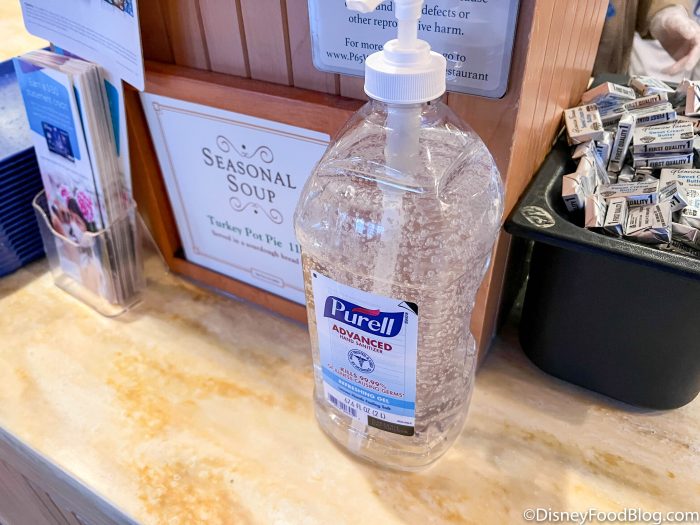
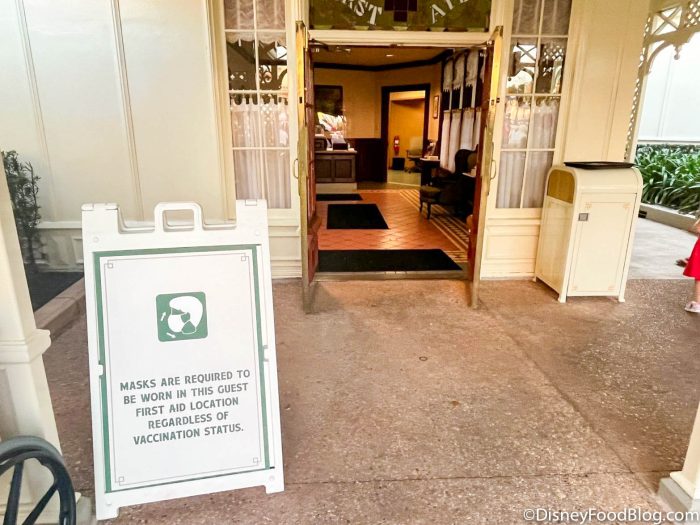
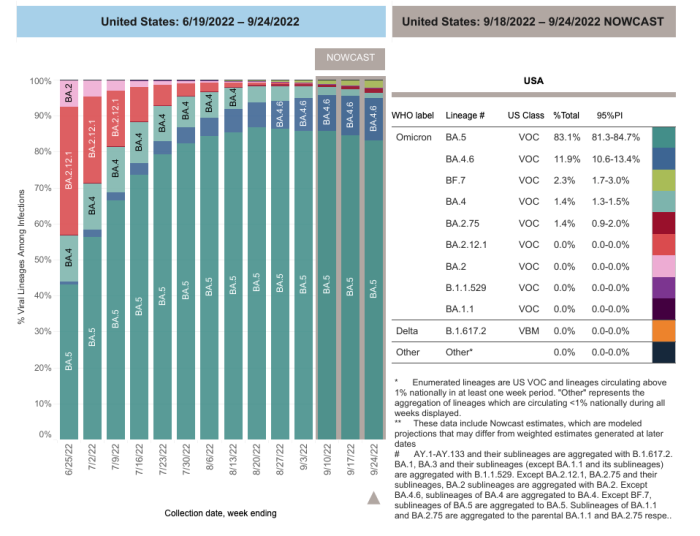
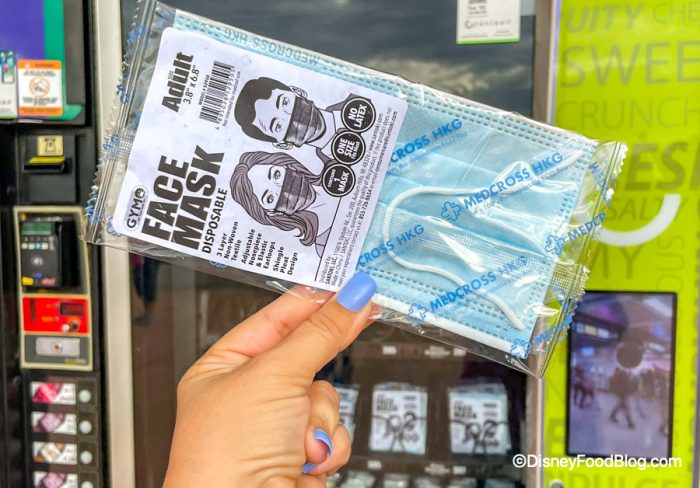
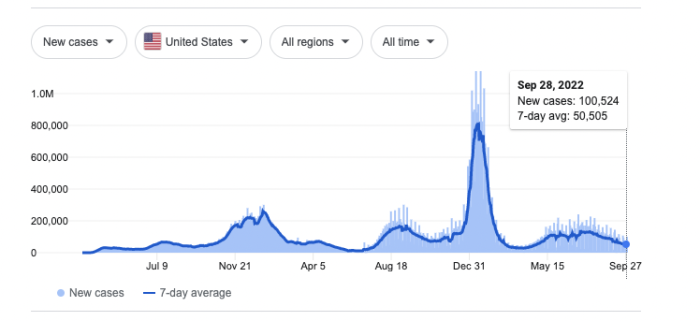

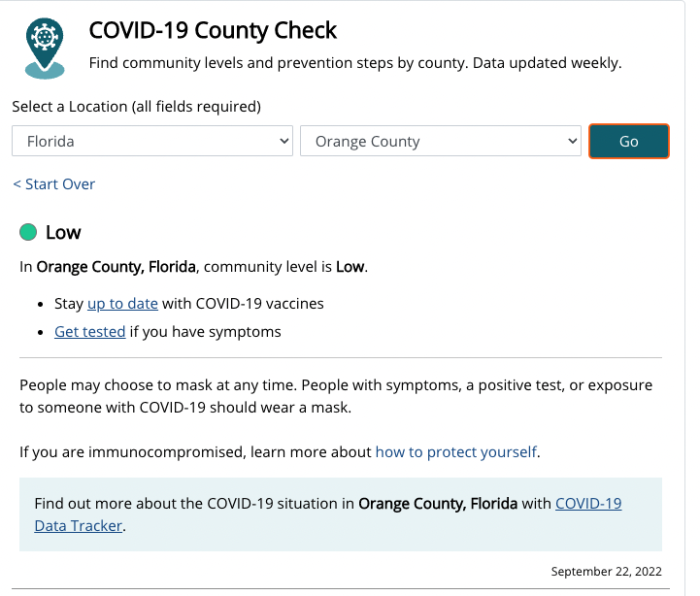

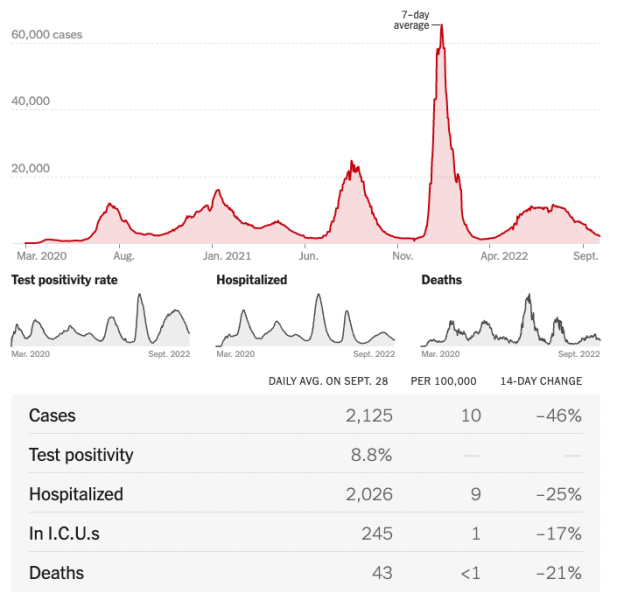
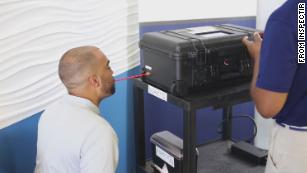
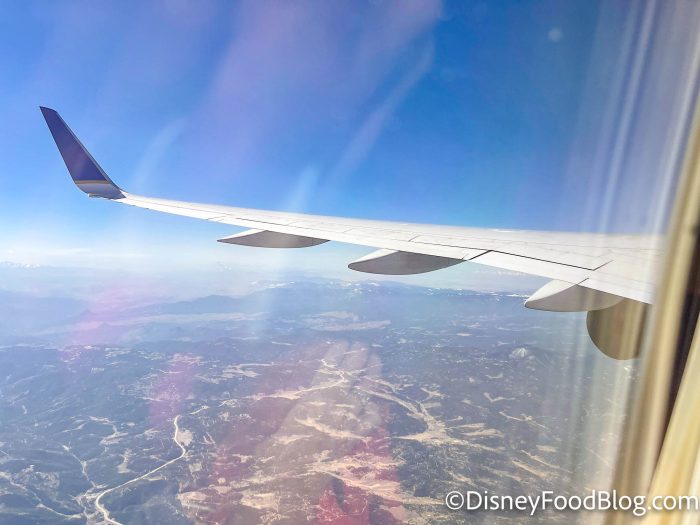
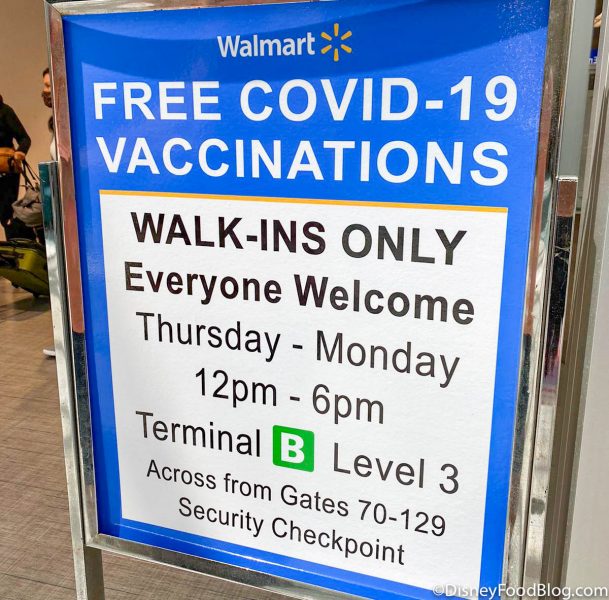
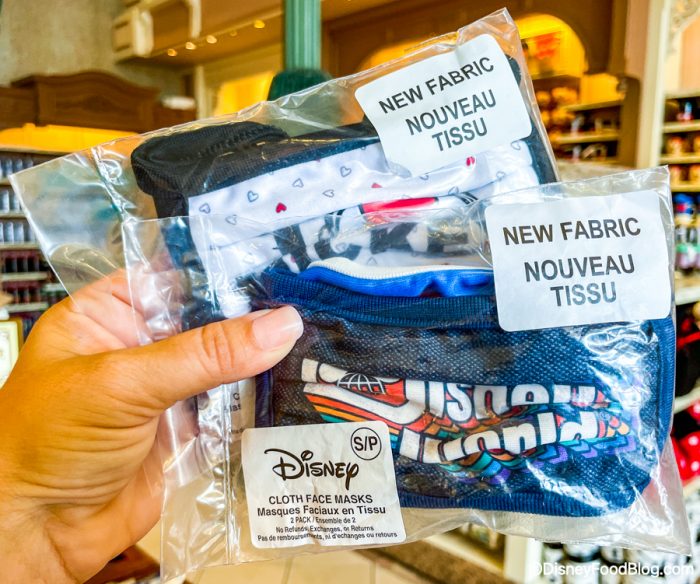

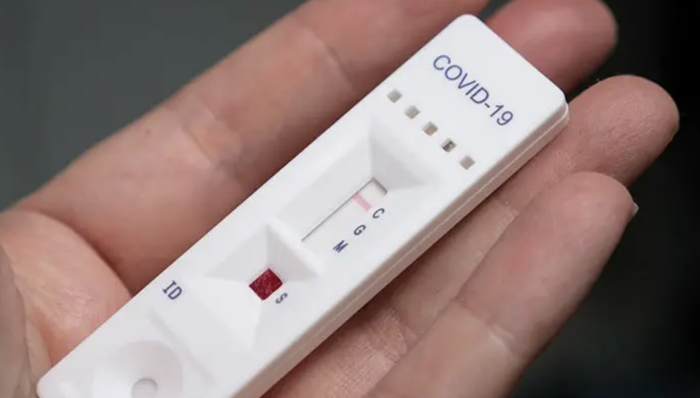


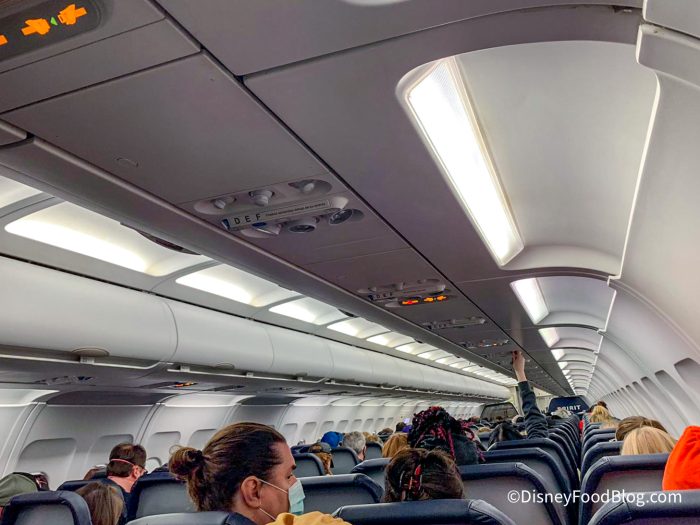
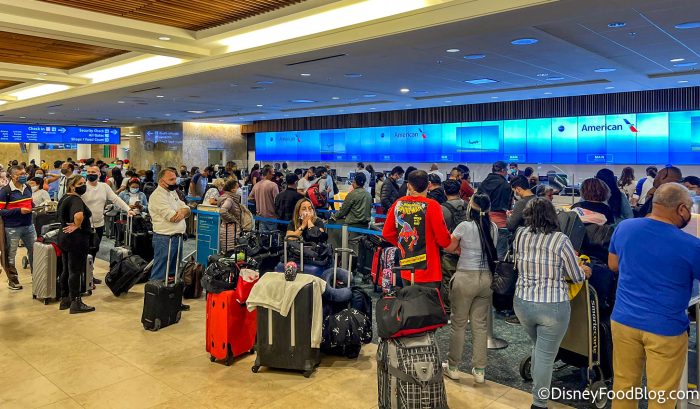


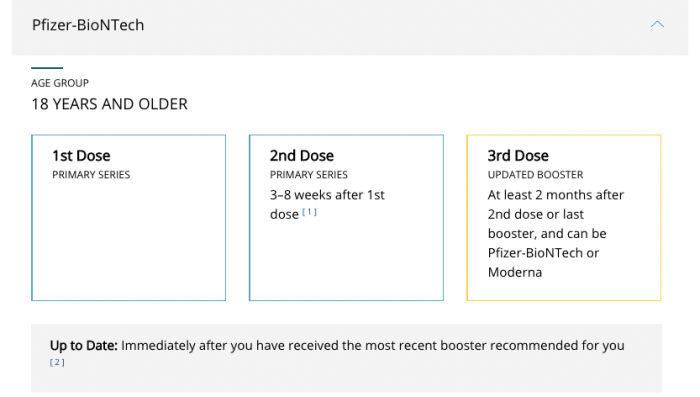









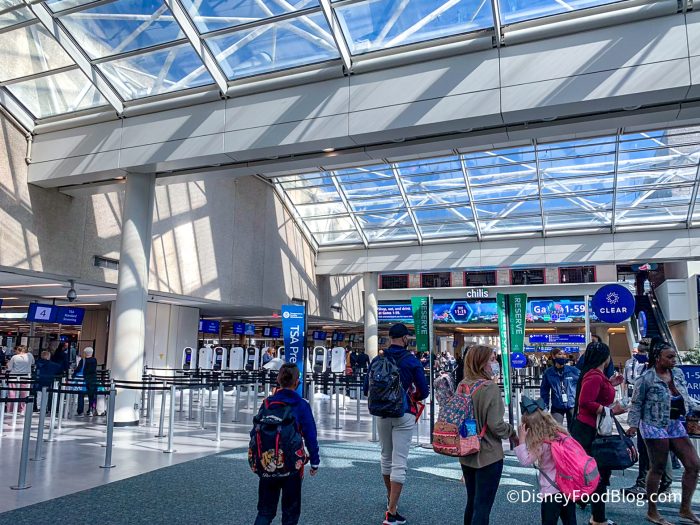


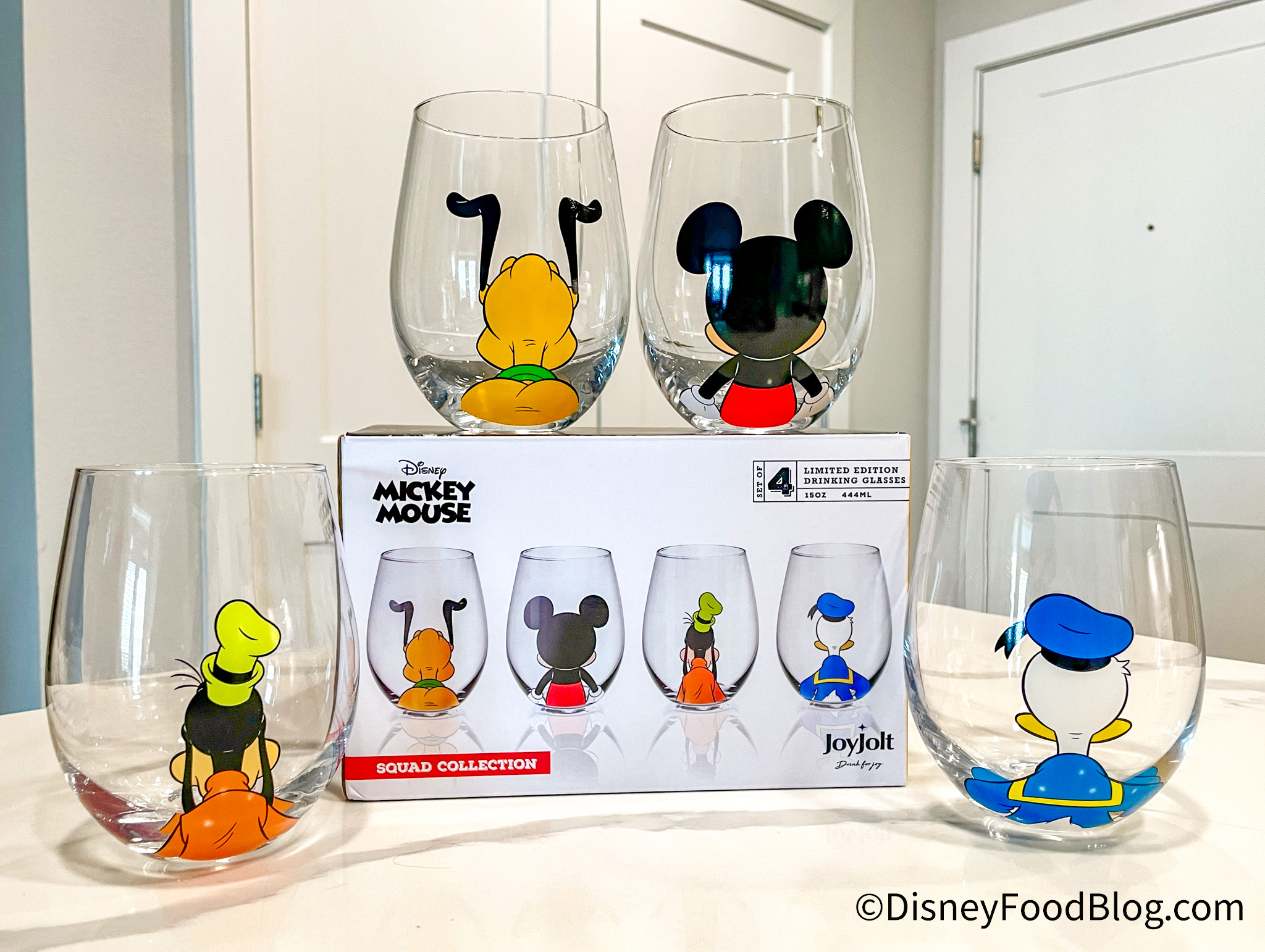


















 Our handy (and portable!) ebook guides make sure you get the best deals and can plan a vacation of a lifetime.
Our handy (and portable!) ebook guides make sure you get the best deals and can plan a vacation of a lifetime.
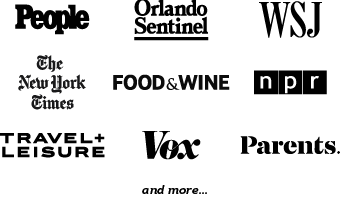
Here we go again…. 🤦🏼♂️
There will always be a COVID-19 variant . Just like this one (Omicron). If anyone had listen to or read the report
from South Africa head of infectious diseases. It is not bad. Yes, it is, transmittable but not more deadly. So lets just jump to the worst case scenario. Fear = control. Control = power. AS I always say, do what you think is best for you and your family. And try not to judge others. Personally, I do not care what others say or do. Just so long it does not tread on my decisions. That being said, enjoy.
Anthony, I agree with you.